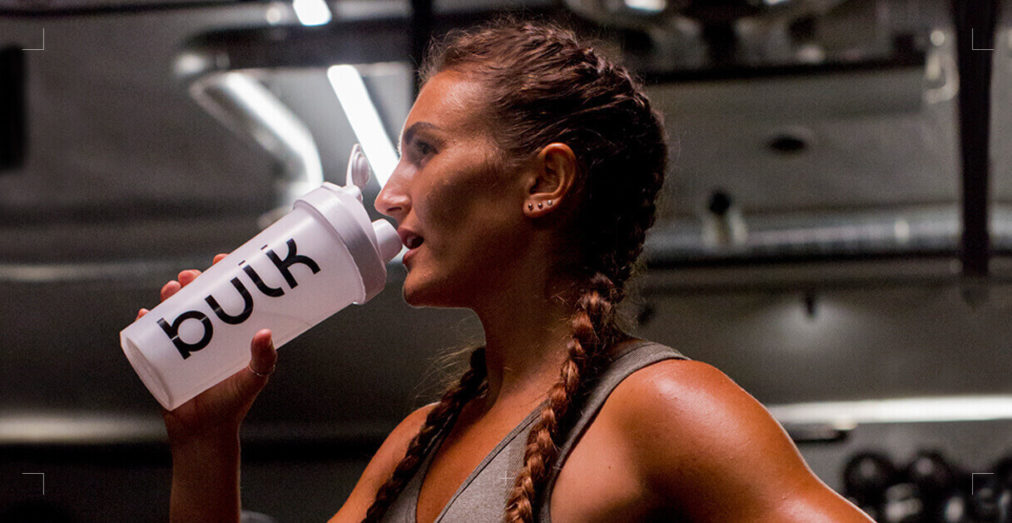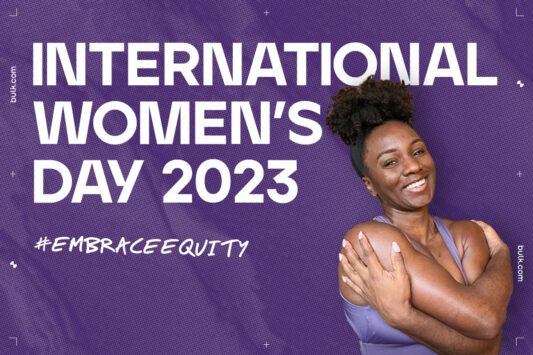As a female entering the weight section of any mainstream gym, it can be very daunting. Especially when the area is busy, and mainly with men. As a female who has trained since the age of 14, I have grown up with many male role models in the weightlifting environment, and none of whom stopped me from wanting to enter the weight section. I’ve weight trained for over 18 years and have always been confused as to why the female to male ratio in the strength section of any gym is a noticeably lower one. Women have always headed for the cardio machines, whilst the males have felt comfortable in the weight training area. It has been considered ‘normal’ for all women to simply not train in the heavy weights area. But why?
Women need to be weight training
For many years women believed that if they weight trained, they would grow muscle fast and look more ‘manly’. But this is scientifically incorrect. Females do not have as much testosterone as males, and we genetically can’t grow muscle as fast or as big as men can. Even if we did exactly the same workout programme and ate exactly the same diet as a man, we wouldn’t look like they do. But women have been led to believe they should only do cardio in the gym and that a ‘toned’ figure comes from endless hours of treadmill running and hundreds of sit ups. Society thinks women should look a certain way and if we dare develop any muscles, it is instantly deemed manly and unattractive for a woman.
But strength training is one of the best things a woman can do, not only to improve aesthetics but to improve posture, metabolism, bone density, stress levels and the ageing process. Improving strength and muscle mass will not only support the immune system, it can also improve our mood and cognitive ability. Our bodies and minds highly benefit from strength training and the stronger we become, the less we care about society’s views on weight training as a woman.
Tips to break the bias
It’s important to educate everyone (specifically our younger generation) on these benefits, so they understand why women need to weight train. Just like men do. Especially for peri/menopausal women, strengthening the bones through weight training can decrease the chances of osteoporosis in later life and vastly improve the quality women’s lives.
Removing the bias language like, “She looks like a man with those muscles” or, “Oh why is she lifting weights?” and changing it to, “There’s a strong woman training” or, ‘She looks strong” is an important way to remove the bias.
I believe that society and the media should follow this approach and start using unbiased language. The less biased language we see, the less bias there will be around women weight lifting and strength training.
How to overcome feelings of intimidation
As a woman, it’s important to note we may feel intimidated in the weights area of a gym at some point. But to help combat this, the most important thing is to stand your ground and know your worth. Also, men in the weight training environment can support women and make them feel more at ease by not watching them lift weights and just treating them equally in the strength training environment.
The main way to feel less intimidated as a woman is to have a plan of action in the weights area. Have a training plan to follow and focus on the task in hand. It’s easier to block out distractions when you’re focused on each exercise. Make sure your technique is spot on so you can get in and out of the gym knowing you’ve had a great session.
My dad taught me to weight train when I was 14 years old. He showed me the ropes of training and made me feel that weight training was normal for women and equal for all genders. Because it is.
If girls are taught this message from a young age, their confidence to weight train will be sky high. This is the same for boys. If they learn that it’s normal and equal to train with weights, the bias shouldn’t exist.
At Bulk™ we believe in sharing
Let us know what you’re up to for International Women’s Day. Check out @bulk for recipes, ambassador workouts and tips. Join the conversation and be part of our community by tagging #TeamBulk. You’ll find more inspiration from our ambassador Hayley at hayleymadiganfitness.
Related articles
Looking to learn more? We believe that every person, with support, has the right to transform their lives through fitness. That’s why we’ve put together these articles to help you on your fitness journey.
Anthony Joshua facts Weight training for boxing
How realistic are superhero workouts? Anthony Joshua Q&A
Body editing apps How Anthony Joshua prepares for fights
Paralympics preparation AJ meets Kate Farley
History of Bulk Katarina Johnson-Thompson training plan












